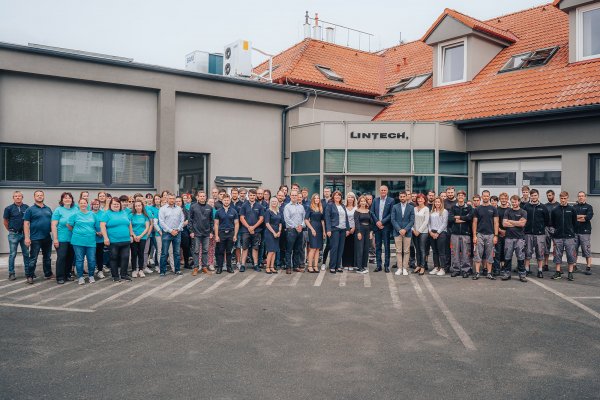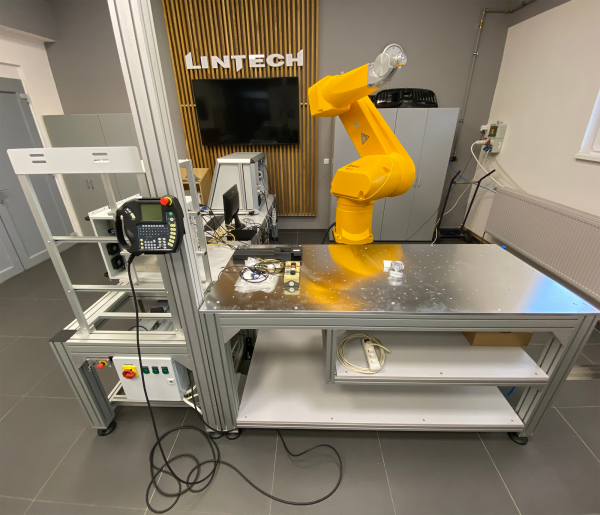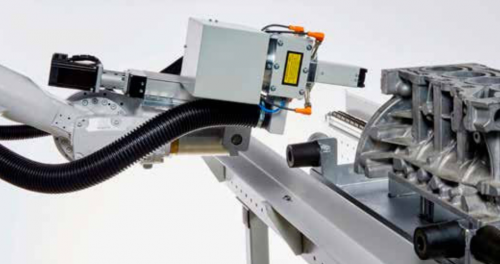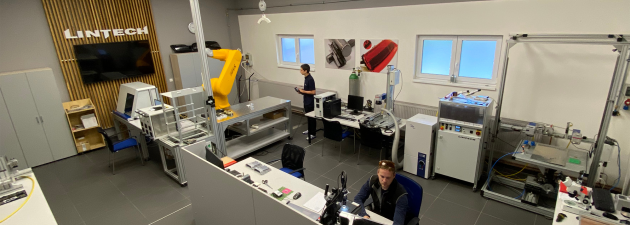"Before the covid pandemic, we were a bit of an outlier in our approach. Back when everyone in global trade followed the just-in-time strategy, we were gradually reducing the number of subcontractors and transferred as many activities as possible to one location. Three years ago, our strategy proved to be correct. With the supply chain disruptions, there were deadline extensions and material shortages. It was the foresight of our colleagues, who bought enough materials in time and in large amounts, and our company’s organizational structure that enabled us to keep responding to customer requests in a flexible way," explains Karel Kubr, Director of LINTECH.
With no external capital, the path is harder, but more rewarding
After the revolution of 1989, innovative human potential laid the foundations for the progress of the Czech electrotechnical and mechanical industry. Václav Hrbáček, Josef Soukup and Karel Kubr, the core of the LINTECH team, all came from this field. "Despite the complex transformation conditions, we caught up with the Western competitors technologically, but initially we paid a high price for our lack of experience in business and marketing," the director recalls.
With long-term vision, the small innovative company set out the development and application of laser technologies, automation and construction of single-purpose machines. In the early 1990s, when the Czech laser industry was just getting started competition from strong multinationals was growing quickly. The small business, with a top-quality team, did not get the necessary investment capital to implement more ambitious plans. Consequently, they took another opportunity and for several years developed, built and supplied electrotechnical components for a partner based in Nuremberg, Germany, namely; high-frequency generators and switched-mode power supplies for lamp lasers. At the same time, the company offered a wide range of services to Czech customers, such as custom marking of products and parts, production of stamps, identification and production labels and including the production of control panels. When the cooperation with the Nuremberg partner ended the company management concluded that the development, construction and servicing of laser and marking technology was the most promising area to focus on.

LINTECH team
The turning point came in 2003-2004, when the Domažlice based company began assembling electrical parts for the automotive industry. Thanks to their fast, high-quality and comprehensive services, LINTECH succeeded as a supplier particularly for automotive subcontractors. Shortly afterwards, the company staff were able to successfully develop, produce and put into operation various machines for plastic welding, engraving, part identification and more.
"To remain competitive, we have long cooperated with New Technologies - Research Centre and the Institute for Research Transfer of the University of West Bohemia and other research institutions in the Pilsen region and Prague. We continue to invest heavily in new technologies. For example we have built our own application lab in which we demonstrate prototypes to our customers and the entire process of technology integration and the functionality and efficiency of a machine. We also provide our clients with a wide range of tests to verify the useful properties of the materials incorporated."

The application lab includes state-of-the-art equipment worth around 30 million CZK
The cross-border commuting phenomenon. Not a surprise
With the Czech Republic entering the EU, a new phenomenon of cross-border commuting occurred particularly in the Czech-German border area. Since then, many people in the Domažlice region have opted to work in the neighbouring Bavaria. Key factors include good accessibility and particularly higher salaries. "It’s a big issue not just for our region but for the entire border area. The data of our partners from IHK Regensburg says that two thousand people who live in the Domažlice region go to Germany for work every day, and if we look at the area between Mariánské Lázně and Klatovy, it’s eleven thousand. Then it’s no surprise that we have a shortage of qualified staff here."
But how does LINTECH manage to stabilize their team? "In engineering, we have minimum staff turnover, although it is slightly higher in manual positions. We are a technology company with a long-term vision, and we remunerate our employees above the Czech norms. In addition, it is paramount for us to have friendly relations and a family-like atmosphere within the team."
Twenty years in the German market
Over the years, LINTECH has built up a wide network of customers mainly in German-speaking countries. Thirty-five percent of total sales go to Germany and Switzerland. As for the Czech Republic, many of the customers are German companies operating in the domestic market.

One of the unique machines produced by LINTECH
"We have exported to Switzerland since 2004 but we only deliver services there. As for Germany, we have also delivered mainly services there since 2010 and, to a lesser extent, we sell OEM versions of machines in the form of semi-finished products with predefined interfaces and German documentation. Over the last six years, we have made efforts to intensify our cooperation in machinery. We cover the German market via both distributors and direct customers, these mostly include automotive producers and telco companies. We also have quite a few customers who order smaller volumes of services in metalworking, laser welding, cutting, engraving and the like. To some extent, we also operate in Italy, Poland, Hungary and Portugal," Karel Kubr concludes.
Written by Věra Vortelová
Photo credits: LINTECH





